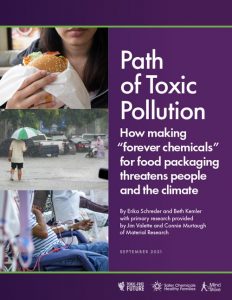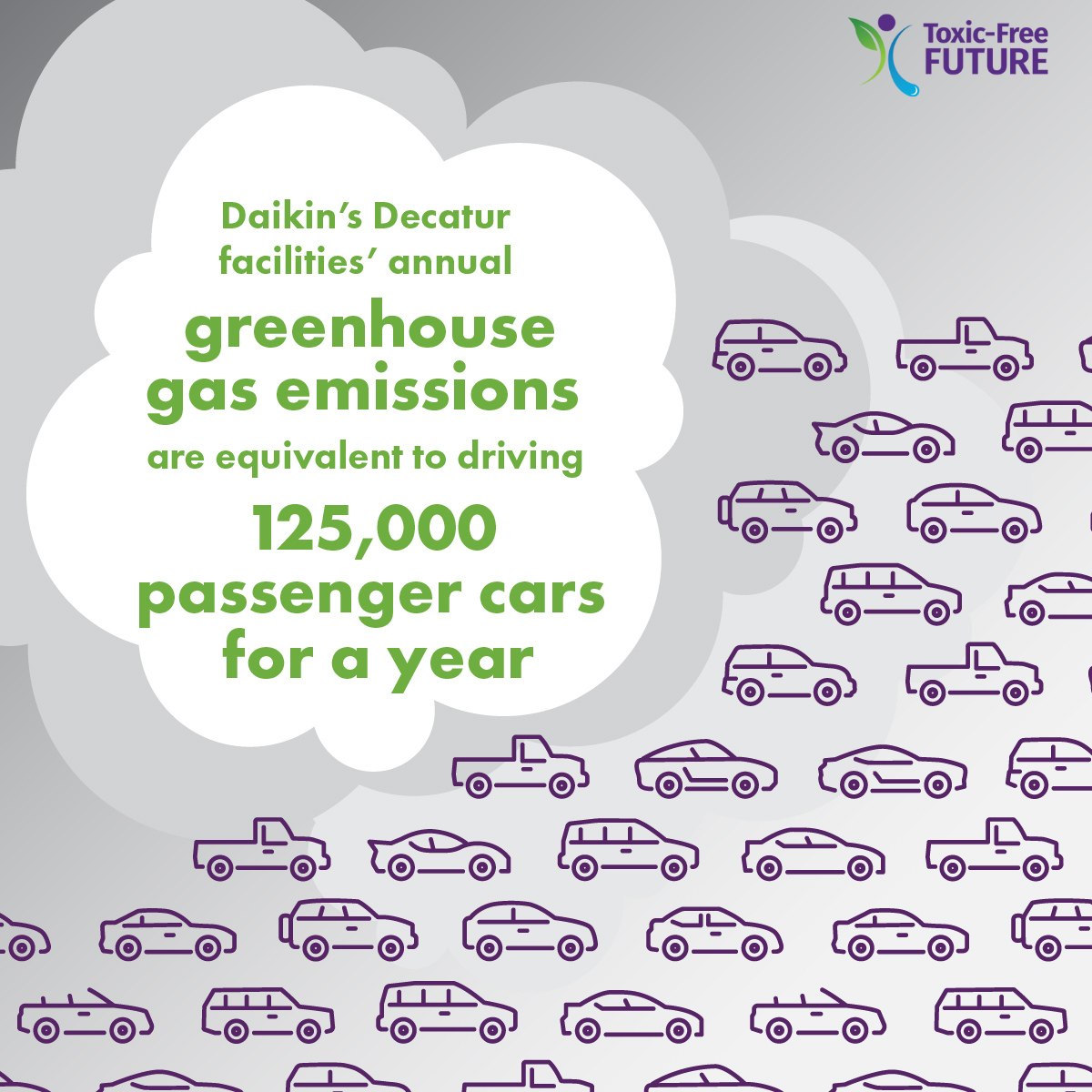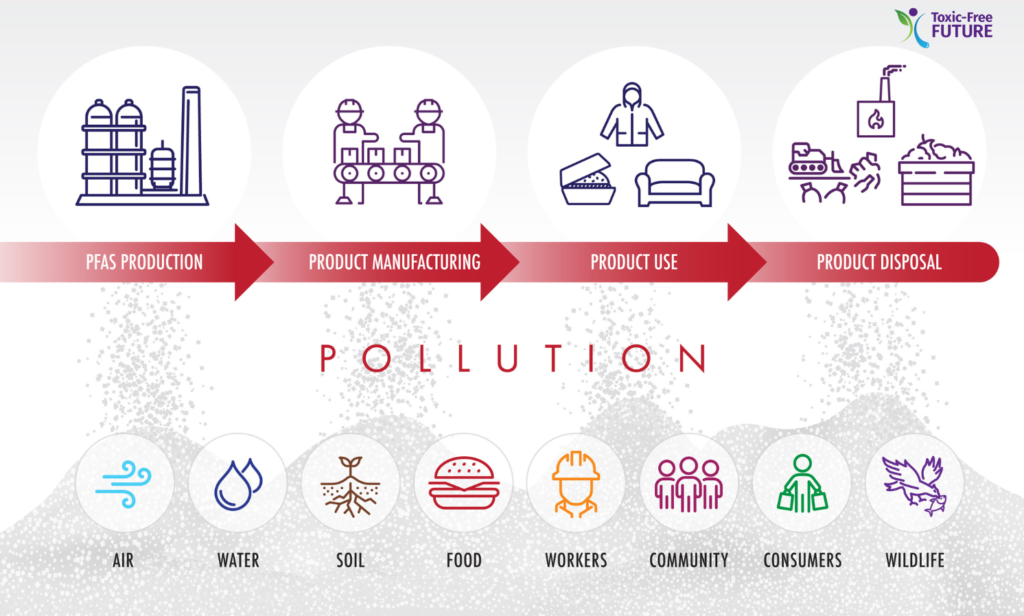Path of Toxic Pollution, an Investigative Report
How making "forever chemicals" for food packaging threatens people and the climate
 Toxic-Free Future’s Path of Toxic Pollution traces the path of American PFAS in food packaging back to one manufacturing company: Daikin America, which manufactures in Decatur, Alabama.
Toxic-Free Future’s Path of Toxic Pollution traces the path of American PFAS in food packaging back to one manufacturing company: Daikin America, which manufactures in Decatur, Alabama.
In 2019, Daikin’s Decatur PFAS manufacturing plants reported releasing 240,584 pounds of a potent greenhouse gas and ozone-depleting chemical, HCFC-22. These emissions make them the nation’s #2 polluter of HCFC-22, and in greenhouse gas terms, equate to emissions from driving  125,000 passenger cars for a year. Daikin’s process for making PFAS also threatens workers’ lives: at least three workers have been killed on the job in Decatur. The drinking water for communities downstream of Daikin’s facilities has been contaminated by Daikin and another facility, with Daikin paying $5 million to the local water utility to address the contamination. And when paper mills apply Daikin’s PFAS treatment to paper, they can release PFAS in wastewater, contaminating rivers and sludge.
125,000 passenger cars for a year. Daikin’s process for making PFAS also threatens workers’ lives: at least three workers have been killed on the job in Decatur. The drinking water for communities downstream of Daikin’s facilities has been contaminated by Daikin and another facility, with Daikin paying $5 million to the local water utility to address the contamination. And when paper mills apply Daikin’s PFAS treatment to paper, they can release PFAS in wastewater, contaminating rivers and sludge.







